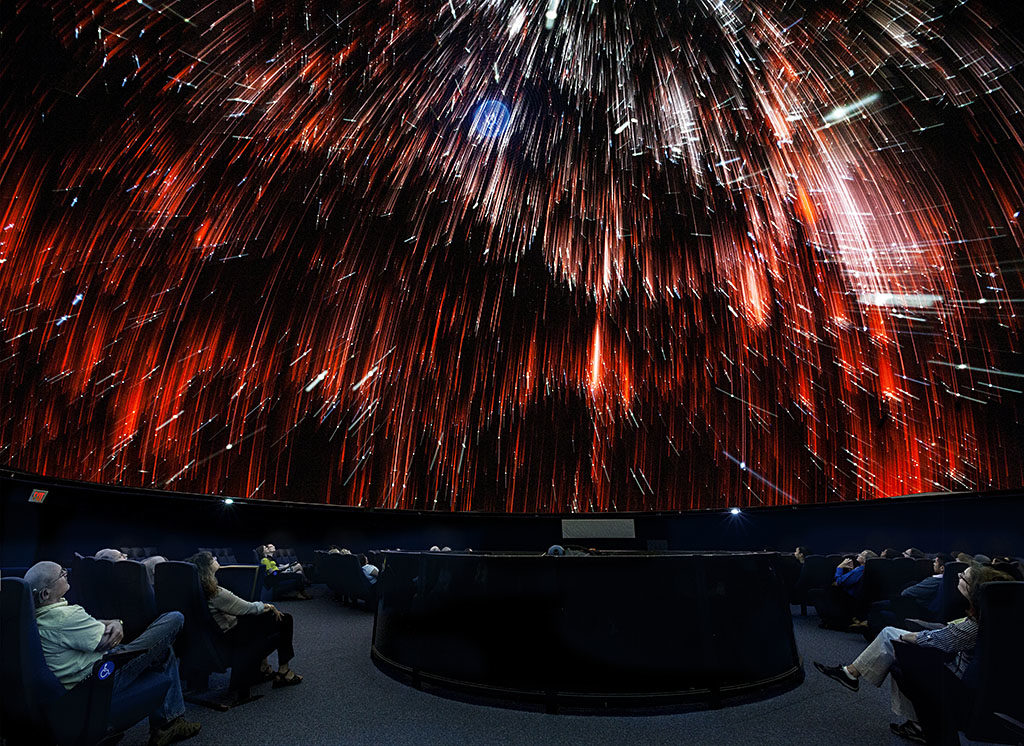Have you ever looked up at the night sky, feeling a deep sense of wonder, and wished you could make that feeling part of your everyday work? Many people, it seems, share this kind of longing. For those who feel a pull toward space, science, and sharing knowledge, a path within a planetarium might just be the perfect fit, you know? It's a place where curiosity takes center stage, and the stars are truly within reach, in a way.
Working in a planetarium offers a chance to join a unique community that brings the universe closer to everyone. These special places are not just about showing off constellations; they are vibrant hubs for learning, exploration, and sparking new ideas. People who work here help to inspire the next generation of space explorers, which is a pretty amazing thing to do, actually.
There is a wide array of roles available in these fascinating institutions, from those who stand under the dome to those who work behind the scenes. It is that blend of education, entertainment, and scientific discovery that makes planetarium work so very special for many, many individuals.
Table of Contents
- What Are Planetarium Careers?
- Why Work at a Planetarium?
- Types of Roles You Might Find
- Finding Your Opportunity: Where to Look
- The Adler Planetarium: A Place to Start
- What to Expect When You Apply
- Frequently Asked Questions About Planetarium Jobs
- Making an Impact in Science Education
What Are Planetarium Careers?
Planetarium careers encompass a variety of professional roles within institutions dedicated to astronomy, space science, and public education. These jobs go beyond just showing star shows; they involve a lot of different tasks to keep these unique centers running smoothly. You might find yourself working with cutting-edge technology, developing new educational programs, or helping visitors have memorable experiences, so it's quite varied.
A career in this area means being part of a team that shares a passion for the cosmos. It is a field that blends science, education, technology, and customer service. People working here often have diverse backgrounds, which is kind of interesting.
The core purpose of these jobs is to communicate the wonders of the universe to a wide audience. This could involve teaching school groups, designing exhibits, or even managing the daily operations of a large facility. There is a lot of scope, you know, for different skills.
Why Work at a Planetarium?
Working at a planetarium offers a chance to be part of something truly inspiring. It is not just a job; it is an opportunity to contribute to science education and public engagement. Many people find deep satisfaction in helping others connect with the vastness of space, which is a rather unique feeling.
These institutions, like the Morehead Planetarium and Science Center, often seek talented, dedicated, and energetic team members. They look for people committed to providing inspiring science education opportunities. This suggests a workplace culture focused on passion and purpose, which can be very appealing.
Moreover, a planetarium environment can be a very collaborative and stimulating place. You are surrounded by people who are just as excited about space as you are, and that kind of shared enthusiasm can make every day feel a little more meaningful. It's a pretty special atmosphere, really.
Types of Roles You Might Find
The range of jobs within a planetarium is surprisingly broad, covering many different skill sets. From direct interaction with visitors to behind-the-scenes technical work, there is a place for many different talents. It's not just for astronomers, you know.
For instance, places like the Adler Planetarium in Chicago, America's first planetarium, have a variety of positions. These roles help them inspire the next generation of space explorers. The diversity of work helps keep things fresh and interesting for staff, too it's almost.
Looking at job listings, such as the 189 planetarium jobs available on Indeed.com, or the 37 planetarium jobs in Chicago, IL, also on Indeed.com, shows the breadth of opportunities. These numbers show that there are real openings out there for people looking to join this field. It's a field with real openings, apparently.
Educational and Interpretive Positions
These roles are all about sharing knowledge and creating engaging experiences for visitors. An interpreter, for example, guides guests through exhibits and presents shows under the dome. They make complex scientific ideas easy to understand and exciting for everyone, which is a pretty important skill.
Positions like associate or ambassador often involve direct interaction with the public, answering questions and providing helpful information. These team members are often the first point of contact for visitors, making their experience welcoming and informative. They are very much the face of the institution, in a way.
Digital content coordinators also fall into this category, as they create materials that educate and engage audiences online. This could involve writing articles, producing videos, or managing social media channels. It's a way to reach people beyond the physical building, so it's quite a modern role.
Technical and Creative Roles
Behind every dazzling planetarium show is a team of technical and creative professionals. A designer, for instance, might work on creating new visual content for the dome, making sure the stars and galaxies look as realistic and beautiful as possible. This requires a blend of artistic vision and technical skill, you know.
Operations supervisors or building managers ensure that the facility runs smoothly and safely. They handle the practical aspects of keeping the planetarium open and accessible to the public. Their work is essential for the visitor experience, even if it's not always seen directly.
These roles are crucial for the overall success of the planetarium, allowing the educational and interpretive staff to do their best work. They are the backbone, providing the support and innovation that keeps the shows going and the exhibits engaging. It's a pretty vital part of the operation, actually.
Administrative and Operational Support
Like any organization, planetariums need strong administrative and operational teams to function. Roles such as senior coordinator involve managing projects, coordinating schedules, and supporting various departments. These individuals ensure that all the pieces fit together, which is quite a big job.
Host/hostess roles, while often visitor-facing, also involve significant operational support, managing queues, and directing flow. They help create an organized and pleasant environment for everyone who walks through the doors. Their contribution makes a big difference to the visitor's day, really.
These positions, whether at a corporate office or one of the planetarium locations, are essential for the institution's overall health. They handle everything from human resources to finance, making sure the entire operation is sustainable and effective. It's a rather broad set of responsibilities, sometimes.
Finding Your Opportunity: Where to Look
If you are thinking about a planetarium career, knowing where to look for openings is a good first step. General job boards like Indeed.com are a solid starting point. As mentioned, Indeed lists a good number of planetarium jobs, both nationally and in specific cities like Chicago, so it's a good place to begin your search.
Many planetariums also list jobs directly on their own websites. For example, you can start your Adler Planetarium job search right on their site. Checking the career sections of institutions you admire is always a smart move, as they often post opportunities there first, you know.
Professional organizations can also be a valuable resource. The International Planetarium Society (IPS) offers a career center where members can find postings. IPS members can log in to search openings, post job openings, find potential candidates, and subscribe to new posting notifications. This kind of specialized resource can be incredibly helpful for finding niche roles, too it's almost.
The Adler Planetarium: A Place to Start
The Adler Planetarium, America's first planetarium, is a prominent example of a place where many different planetarium careers exist. It is located in Chicago, IL, and it frequently has job openings. You can find out what works well at Adler Planetarium from the people who know best, getting the inside scoop on jobs, salaries, top office locations, and even CEO insights, so it's a good place to learn about.
For instance, recent listings for the Adler Planetarium on Indeed.com included roles like senior coordinator, designer, and operations supervisor. These specific examples show the variety of work available at a major institution. It suggests a dynamic environment with different needs, apparently.
It is also possible to compare pay for popular roles at places like the Adler Planetarium, which can help you understand the compensation landscape. Knowing what to expect in terms of salary can be a useful part of your job search preparation. This kind of information is helpful for planning your next steps, you know.
What to Expect When You Apply
When you apply for a planetarium job, whether it is for an associate, digital content coordinator, or interpreter position, you should be ready to show your passion for science and education. Institutions like the Morehead Planetarium and Science Center look for team members committed to providing inspiring science education opportunities. This means your enthusiasm matters, a lot.
Having relevant experience, even if it is volunteer work or informal teaching, can be a big plus. Showcasing your ability to communicate complex ideas clearly and engage diverse audiences will also be very beneficial. They want to see that you can connect with people, too it's almost.
Remember that many roles might require specific technical skills, especially for positions like designers or operations staff. Always tailor your application to highlight how your skills and experiences match the job description. This careful approach can make a real difference in your application, you know.
Frequently Asked Questions About Planetarium Jobs
People often have questions when they first start thinking about a career in a planetarium. Here are some common inquiries that might come up as you explore this field. These questions can help clarify what to expect and how to prepare, which is pretty useful.
What qualifications do you need for a planetarium job?
Qualifications vary quite a bit depending on the specific role. For educational positions, a background in science, astronomy, or education is often preferred. Communication skills are very important, as is the ability to engage with different age groups. Technical roles might require specific degrees or certifications in areas like AV technology, design, or IT, you know. For administrative jobs, standard office and management skills are usually needed. It really depends on the exact duties of the position, so it's quite varied.
What types of jobs are there at a planetarium?
As we have seen, there is a wide range of jobs. These include roles like interpreters, educators, digital content coordinators, designers, operations supervisors, and administrative staff. You might also find positions in visitor services, marketing, fundraising, and even research. The variety means there is often a place for many different talents and interests, which is a good thing, really.
Is working at a planetarium a good career?
For many, working at a planetarium is a very rewarding career. It offers the chance to combine a passion for space and science with meaningful work that impacts the public. While salaries can vary, the satisfaction of inspiring others and contributing to science education is often a huge draw. It is a unique environment, and for those who love what they do, it can be an excellent long-term path, you know.
Making an Impact in Science Education
Choosing a planetarium career means joining a mission to spread knowledge and spark wonder about the universe. It is a field where your work can genuinely inspire the next generation of space explorers, as the Adler Planetarium aims to do. This kind of impact is something many people seek in their professional lives, too it's almost.
Whether you are teaching a child about Saturn's rings or designing a breathtaking new show, your efforts contribute to a greater understanding of our place in the cosmos. It is a chance to be part of something bigger than yourself, which is a pretty powerful motivator. Learn more about astronomy education on our site.
The opportunities are out there, from major institutions to smaller local centers. So, if you feel that pull toward the stars, consider exploring the diverse and fulfilling world of planetarium careers. You might just find your perfect professional home among the galaxies. You can also link to this page about science communication for more details.



